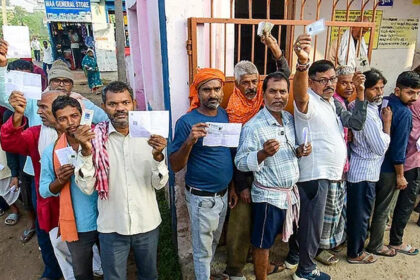India has been named among the first four countries in the world to receive in-country data processing for Microsoft 365 Copilot by the end of 2025. The announcement signals a major milestone for Microsoft’s AI-powered productivity suite, giving Indian organizations enhanced control, compliance, and security over their AI data processing. Alongside India, the new initiative will first roll out in Australia, Japan, and the United Kingdom before expanding to more countries in 2026.
- India Inclusion Highlights Microsoft’s AI Expansion Strategy
- What In Country AI Data Processing Means for Users
- Microsoft Global AI Sovereignty Push
- Why It Matters for India’s AI and Cloud Ecosystem
- Microsoft 365 Copilot: A Boost for Indian Enterprises
- The Road Ahead: Expanding AI Processing in Indian Data Centres
India Inclusion Highlights Microsoft’s AI Expansion Strategy
With this move, Microsoft positions India at the center of its AI infrastructure and data sovereignty roadmap. The company confirmed that AI queries from Microsoft 365 Copilot users in India will soon be processed entirely within Indian data centres under normal operating conditions.
This means organizations — especially those in government, banking, and other regulated industries — can now benefit from data localization while maintaining the capabilities of the AI-powered Microsoft 365 Copilot suite. The initiative directly supports India’s ongoing digital sovereignty goals and strengthens trust among enterprises concerned with data residency and governance.
What In Country AI Data Processing Means for Users
According to Paul Lorimer, Corporate Vice President for Office 365 Enterprise and Cloud Engineering at Microsoft, this rollout will ensure that prompts and responses processed by Copilot’s large language models on Azure OpenAI stay within India’s borders.
This offers three core advantages for Indian businesses and public-sector institutions:
- Enhanced Data Sovereignty: Sensitive corporate and government data will no longer need to leave the country’s digital boundary.
- Improved Security and Compliance: Organizations can meet regulatory mandates under India’s data protection and digital governance frameworks.
- Reduced Latency: Processing data locally means faster AI responses and smoother user experiences for Microsoft Copilot features like document drafting, meeting summaries, and workflow automation.
Microsoft Global AI Sovereignty Push
After India, the in-country data processing feature will expand to 11 additional nations in 2026, including the United States, Canada, Germany, Italy, Spain, Sweden, Switzerland, the UAE, Malaysia, Poland, and South Africa.
The broader initiative will cover 15 countries globally, reinforcing Microsoft’s commitment to AI data sovereignty and global compliance. The company already provides in-country data residency across 27 countries and has implemented a European Union Data Boundary to align with regional privacy laws such as GDPR.
Why It Matters for India’s AI and Cloud Ecosystem
India’s inclusion reflects how rapidly its digital infrastructure and AI adoption are growing. In recent years, the government’s emphasis on data localisation and responsible AI governance has pushed global tech firms to strengthen their presence in Indian data centres.
Microsoft, which already runs several Azure regions in the country, is expanding its AI-enabled data centre footprint to support Azure OpenAI deployments. These high-performance centres host powerful GPUs capable of running large language models (LLMs) that power Copilot’s generative AI features.
This development also complements India’s evolving Digital Personal Data Protection Act (DPDP) and aligns with the government’s push for secure AI innovation. For sectors like finance, healthcare, and public administration, having AI processing in India marks a key step toward trusted digital transformation.
Microsoft 365 Copilot: A Boost for Indian Enterprises
Launched globally in 2023, Microsoft 365 Copilot integrates generative AI into everyday tools like Word, Excel, PowerPoint, Outlook, and Teams. By processing AI interactions locally, Indian users can expect improved compliance transparency and operational confidence.
As more companies adopt AI-powered productivity suites, local processing ensures they can meet both international security standards and domestic data laws without compromising efficiency or innovation.
Microsoft emphasized that this update is “designed to empower customers, particularly those in highly regulated industries, to access Microsoft Copilot features with enhanced options for governance, security, and compliance.”
The Road Ahead: Expanding AI Processing in Indian Data Centres
By the end of 2025, Microsoft plans to fully operationalize AI processing in Indian data centres, enabling customers to run AI queries within national borders. This move not only enhances user trust but also positions India as a strategic AI hub for Azure OpenAI services.
The company’s long-term vision involves integrating AI governance frameworks directly into its cloud operations, ensuring that AI data handling, training, and responses adhere to sovereign compliance rules.
As India’s AI ecosystem matures, this initiative could inspire other global technology companies like Google, Amazon, and Meta to accelerate in-country AI processing models for their services.
India’s selection as one of the first four countries to receive in-country AI data processing for Microsoft 365 Copilot marks a pivotal moment in the nation’s AI sovereignty journey. While the rollout will complete by end-2025, it already signals how major cloud providers are adapting to local governance and compliance needs.
For Indian enterprises, this is more than a technical upgrade — it’s a statement of digital independence, trust, and global recognition in the evolving world of AI infrastructure and data governance.








